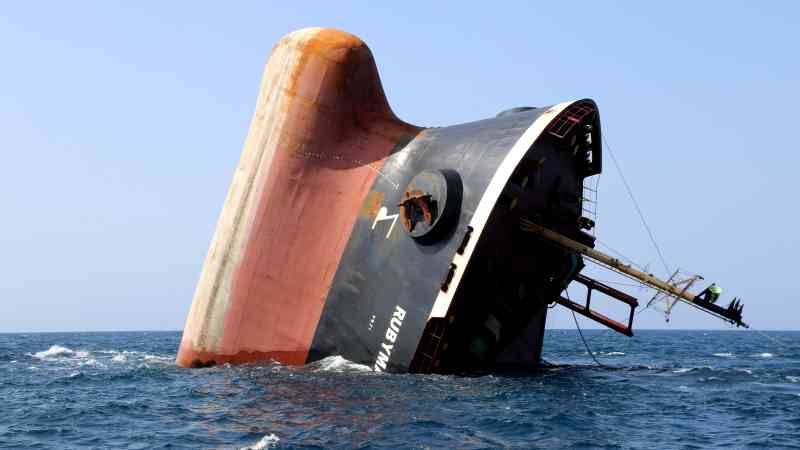International shipping costs are up 244 per cent since the start of the Red Sea crisis and could rise again over the next few months, experts have warned.
Attacks on ships in one of the world’s busiest maritime corridors by Iranian-backed Houthi rebels in Yemen, in support of Hamas in Gaza, have forced many vessels to sail via South Africa instead.
Restrictions in the Panama Canal and signs of escalation in the US-China trade war have inflated prices further.
It currently costs $4,775 to ship a standard 40ft steel container across main trade routes, according to the Drewry World Container Index, up from $1,389.5 in October last year.
Analysts have warned of further price rises and predict that demand for shipping will remain high until at least February next year. They have also warned that potential labour disputes on America’s east and Gulf coasts could further disrupt supply chains and increase cargo rates.
“The prolonged impact of Red Sea disruptions is having knock-on effects across supply chains,” said Patrick Lepperhoff, principal at Inverto, the supply chain management consultancy. “Supply chains remain very brittle.”
There has been some slight easing in prices in the past few weeks, from a peak of 300 per cent during the summer, but rates are still 78 per cent higher since the start of the year.
The Red Sea crisis has forced British retailers to stock up early for Christmas. This has already meant that the shipping industry has had to work throughout the traditional summer lull to move goods from China and southeast Asia to the UK and Europe.
Typically, retailers would expect goods for the Christmas period after September, but this year they have demanded shipments from suppliers from July onwards. Retailers also fear volatile shipping rates will suddenly start moving higher again, according to Inverto.
Lepperhoff said: “Usually, the summer is a quiet time for shipping and warehousing. However, at present the shipping industry is remarkably busy, as the complex process of getting shops stocked for the key Christmas period is moved forward two months.
“This has put pressure on the retailers themselves as they take in more stock early which they may not have warehouse space for. Instead, retailers will need to seek short-term storage back-up space, which can be very costly.”
